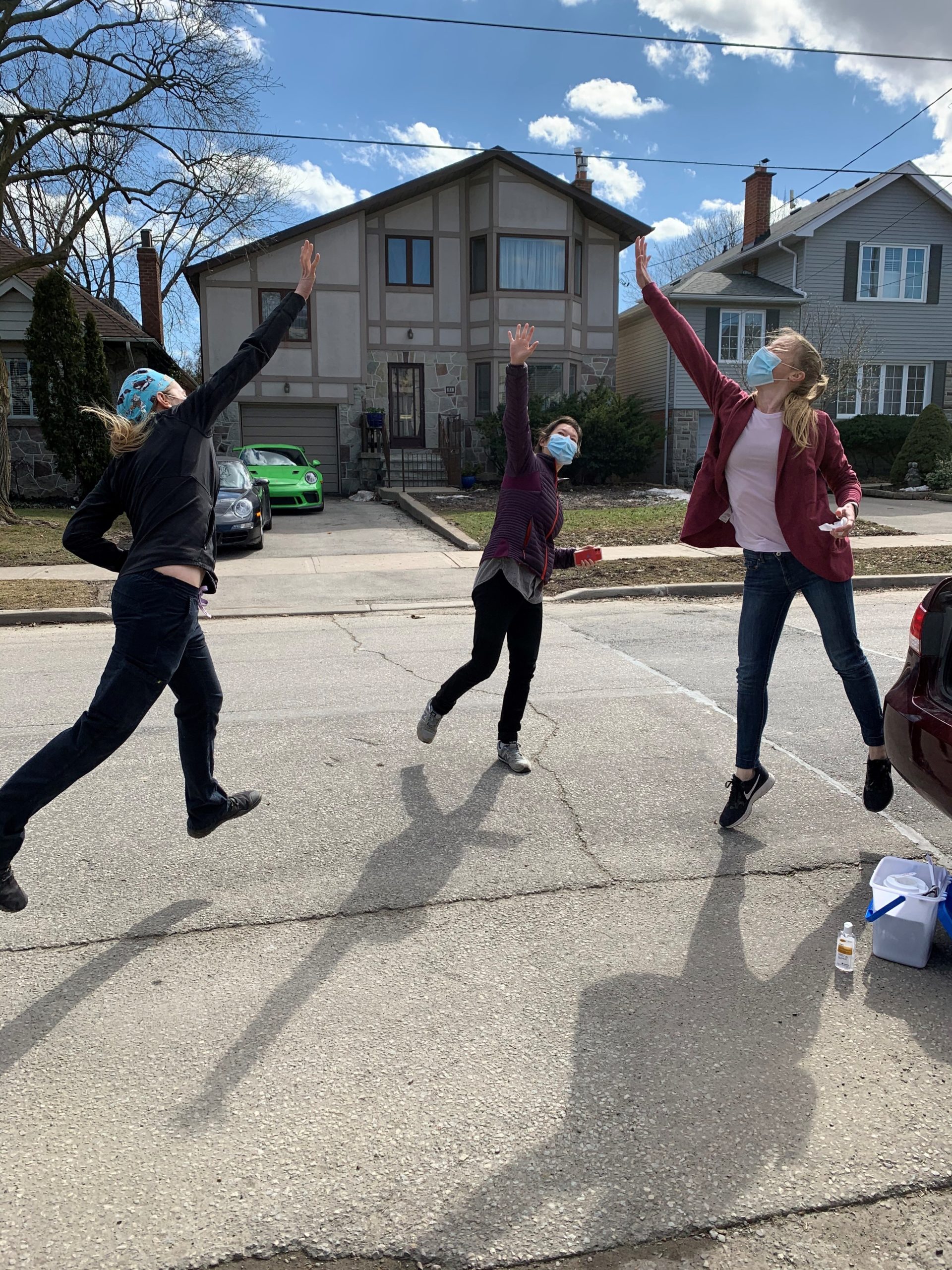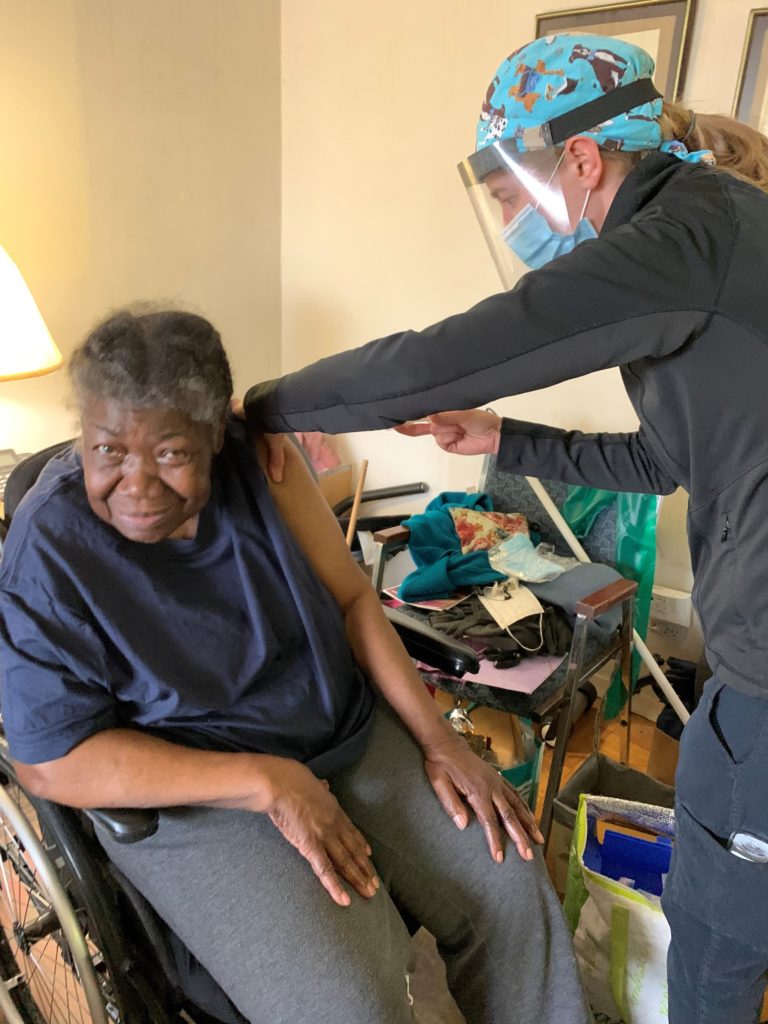Mobile Vaccination Program Bringing COVID-19 Vaccines to Homebound Toronto Seniors

As COVID-19 vaccines are rolling out across the province it has become increasingly clear that even when a population is eligible, the vaccine isn’t always within reach. In Ontario, there are over 75,000 seniors with medical, cognitive, or social frailties that leave them unable to access vaccination clinics, and without the necessary support this homebound community will be left behind.
“Since the development of COVID-19 vaccines, we have been advocating for homebound seniors to be vaccinated in their homes. For our patients and many others like them across the province, in-home vaccination is not a convenience. It is a necessity and a life-saving intervention. While some seniors with complex health issues can benefit from transportation services to vaccination clinics, without in-home programs the majority of our clients just wouldn’t get vaccinated any other way,” said Leslie Coulter an Occupational Therapist with VHA Home HealthCare and Associate Program Lead at House Calls program in Toronto.
Leslie and her team at House Calls provide in-home primary medical care as well as physiotherapy, occupational therapy and social work for homebound seniors in a catchment area that reaches almost half the city of Toronto. With SPRINT Senior Care as the Lead Administrative Agency and in collaboration with VHA Home HealthCare (VHA), House Calls replaces a traditional office-based primary care provider allowing frail and vulnerable seniors to continue to live safely at home.
“Even though our patients typically can’t leave their homes they still have a lot of possible exposure to COVID-19. They are cared for by professional and family caregivers, they often live in neighbourhoods with high incidences of COVID-19 and are extremely susceptible to complications,” said Lindsay Jones, Nurse Practitioner, House Calls.
To reach this vulnerable population, the University Health Network, select home care providers and the Toronto Paramedic Services collaborated to launch a mobile vaccination program this spring. However, from the beginning the House Calls team didn’t think it made sense to outsource their caseload to paramedics, who could instead focus their work in other areas of the community. “With seven physicians and two nurse practitioners on staff, vaccinating is a core skill used regularly in our practice. We know our patients, the nuances of home care and our reassurance and support can have a big impact on any vaccine hesitancy,” said Leslie.
After starting each day by picking up vials through the Toronto Paramedics, House Calls’ vaccinators have already reached over 300 patients and caregivers, quickly covering their entire caseload over a 14-day period. Now they’re doing catch up for any new referrals or for clients that were hospitalized during the initial roll-out and will return for second doses soon

Client receiving vaccine at home from a House Calls member.
“Substantial barriers to in-home vaccinations have made programs like this difficult to launch. From mapping out vaccinations geographically ahead of time, the logistics of moving around the city, vaccine storage and transportation requirements and to the race against the clock with only six hours to use every dose after a vial is drawn. It’s definitely difficult work, but we know that it can be done and it’s beyond rewarding,” Lindsay said.
“We are so very proud of what we have been able to accomplish within these very difficult circumstances and as a small-scale mobile team typically working with only three vaccinators at a time. On vaccination days, colleagues would cover our caseloads to make sure that we never had to compromise patient care and with Leslie behind the wheel in a dispatcher role, she was able to cleverly move us around the city as quickly and efficiently as possible and reassign doses so that we never lost any vaccines,” said DeeDee McEwan, Nurse Practitioner, House Calls
This initiative is a pilot project that the House Calls team and Toronto Paramedics hope can be scaled up and effectively replicated in other communities across the province to ensure that all homebound individuals—including younger residents—receive the COVID-19 vaccine at home.
“It’s hard to think of just one example where I really saw the impact of this program because everyone was so genuinely appreciative,” said DeeDee. “One of my patients has a physically disabled son that acts as his primary caregiver along with the patient’s wife. By bringing the vaccine directly to them, it meant that the patient’s wife didn’t have to scramble for alternate care for her husband or struggle to get herself and her son to a vaccination clinic, and I could just see the weight lifted off their shoulders. To support and protect this family when they have spent an entire year trying to stay afloat, this is why we do what we do,” she said.
To learn more about the House Calls program, visit seniorshousecalls.ca and watch the powerful National Film Board award-winning documentary House Calls.
